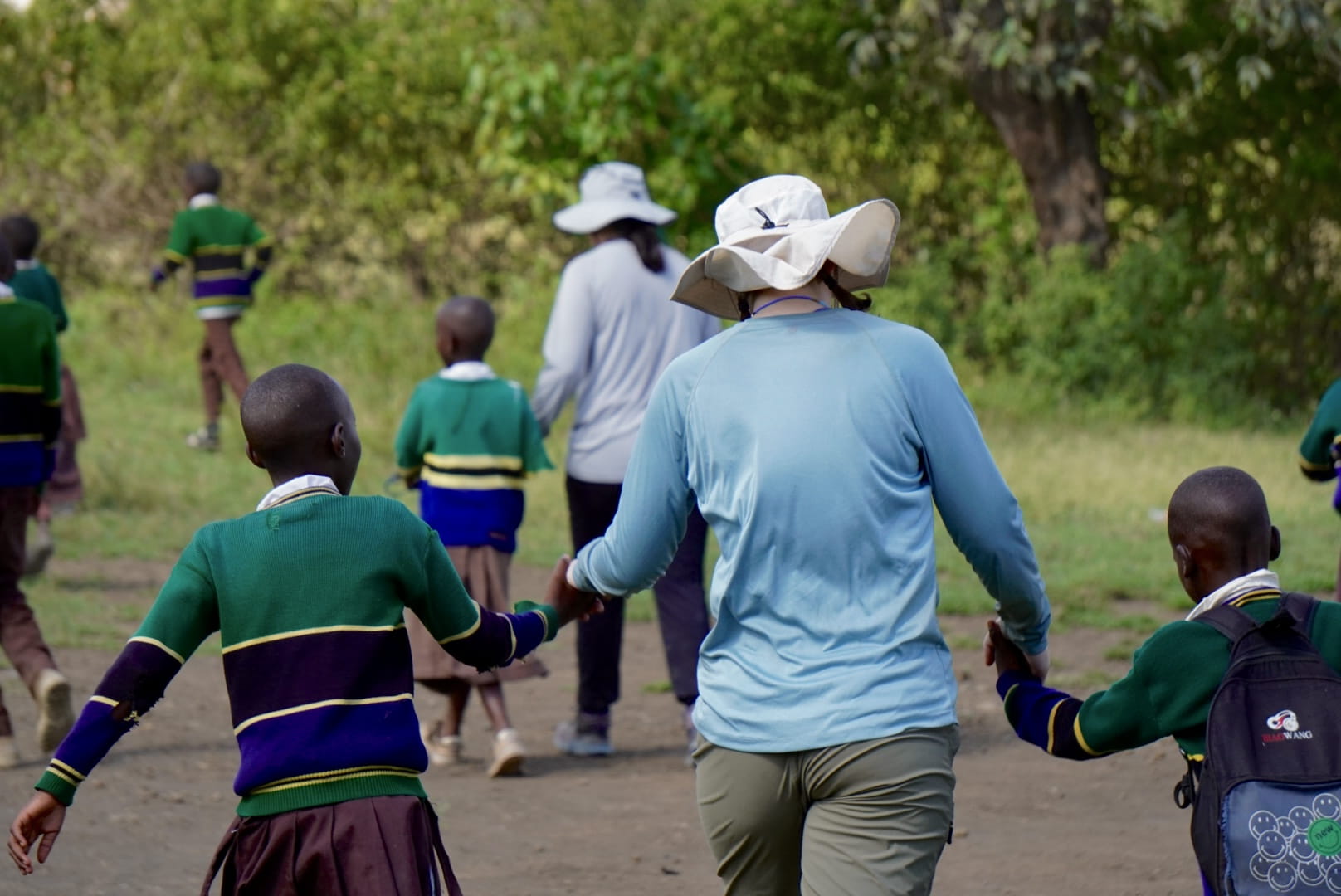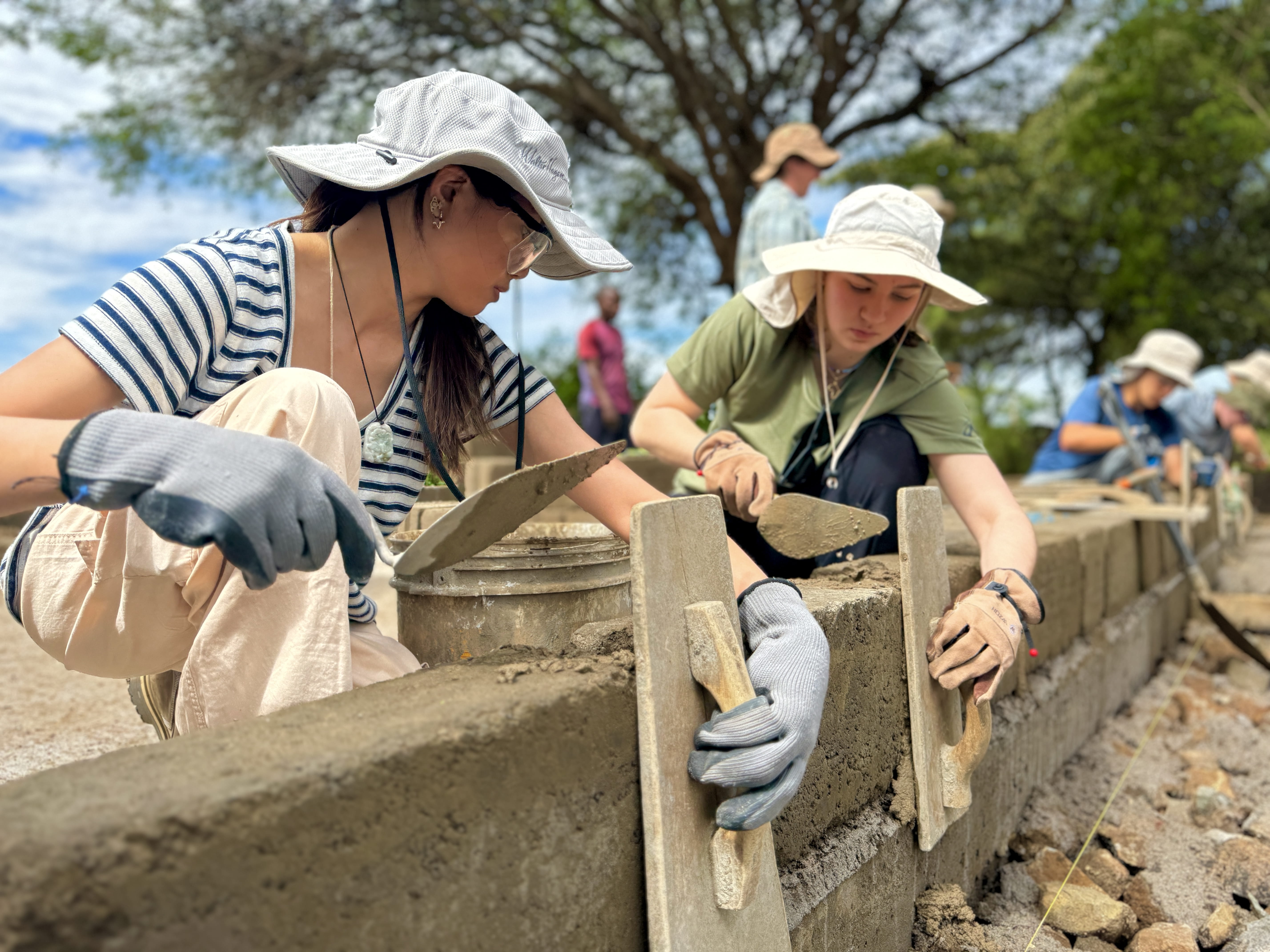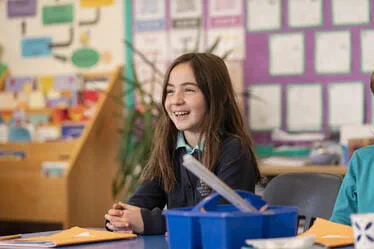In March 2024, my class and I traveled across the Atlantic Ocean to spend 9 days in Arusha, Tanzania. Growing up at BISB and attending Tanzania trip fundraisers and assemblies, this trip was well anticipated. Reaching this point was a huge milestone, and I wasn’t quite sure what to expect.
Upon landing at Kilimanjaro International Airport, we were all bursting with excitement and anticipation, uniformly dressed in matching BISB Tanzania T-shirts. Our first stop was Shamba Kipara Camp, where a warm welcome and hot meal eased the travel exhaustion before a restful night.
The following morning, we ventured into the remote areas of Tanzania on a safari. Coming face-to-face with the untamed African wildlife–elephants, lions, and giraffes roaming free an arm’s length from us– felt beyond our imagination as we all crouched along the edge of the van, eager to get a better look. That evening, under a clear starry sky, we gathered around a campfire to learn about the culture and traditions of the Maasai tribe from our local guide before tucking into our tents.
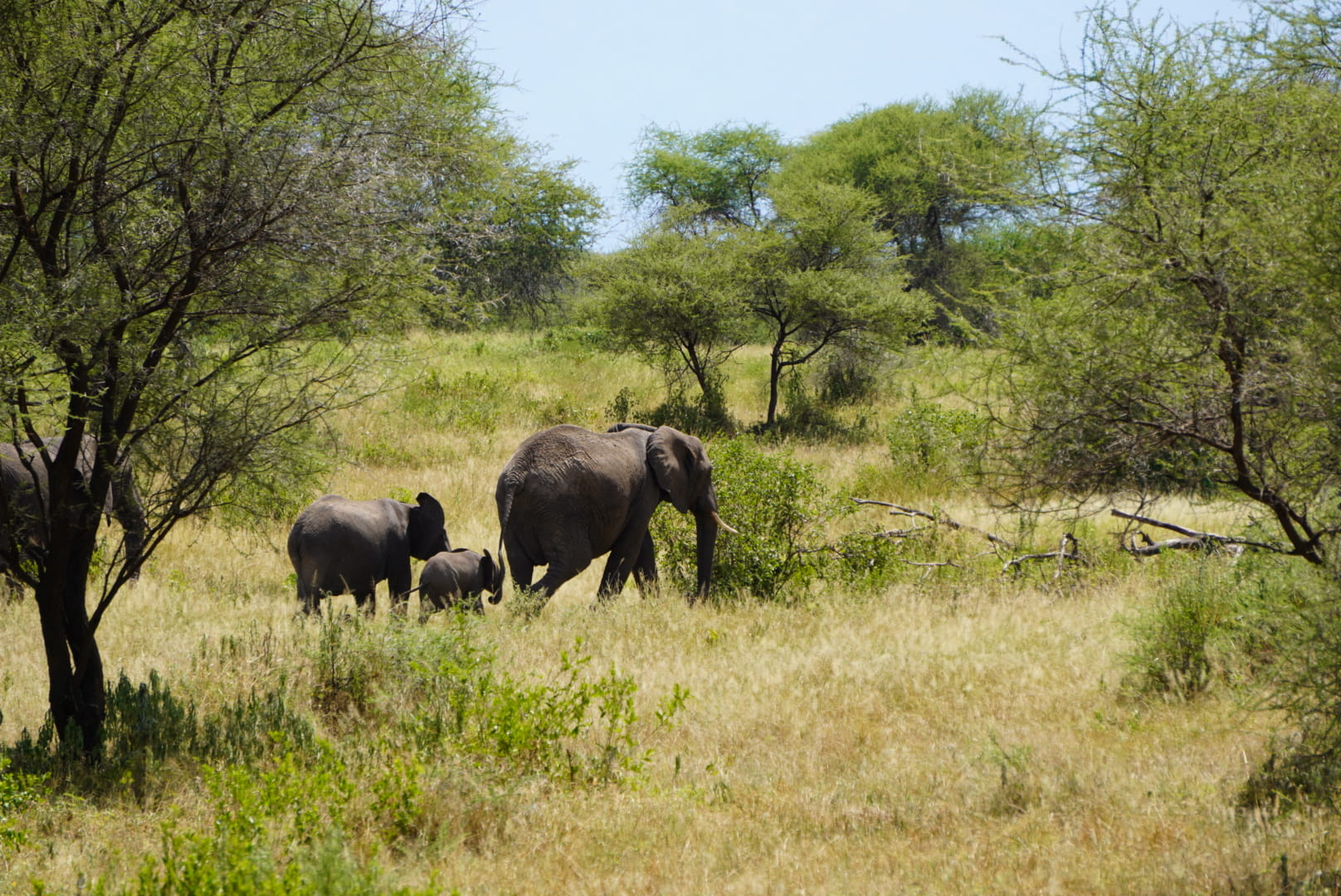
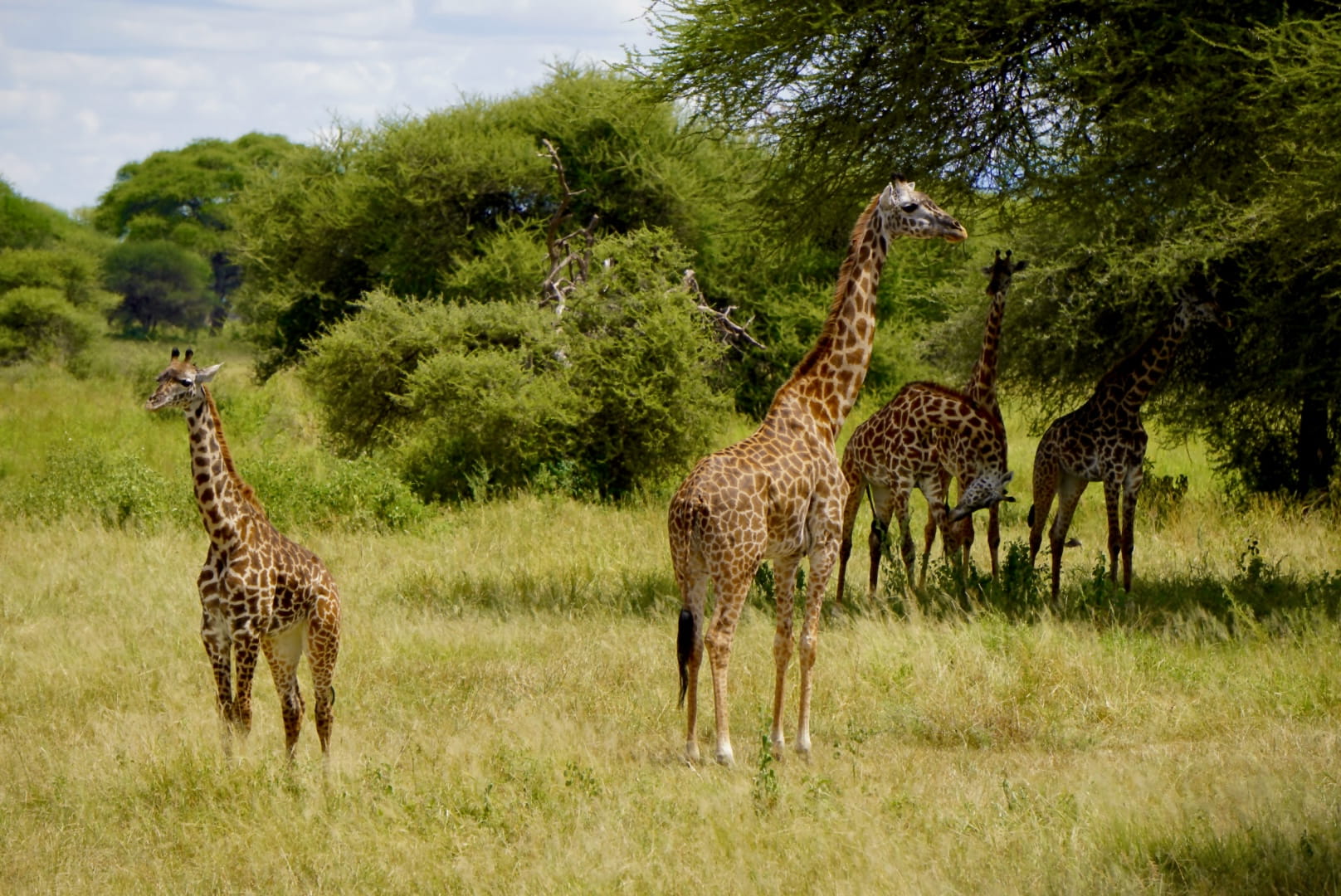
The next day, our safari expedition resumed in time to catch a blurry pink sunrise, later stopping to wander around a local market, where hand-painted portraits of animals and Maasai people captivated us. A Maasai woman spoke to me about her painting, which now adorns the wall above my bed.
The real challenges though began while building a classroom at the Dolly Bush Primary School. Tasks like making and laying concrete and constructing brick walls were both physically and mentally testing.
Communication skills were vital, so language gaps with the construction works needed bridging. I learned to say things like "ni juu sana?" ("is it too high?" in Swahili) and establish non-verbal confirmations like smiles and thumbs up (which were always reciprocated with a smile).
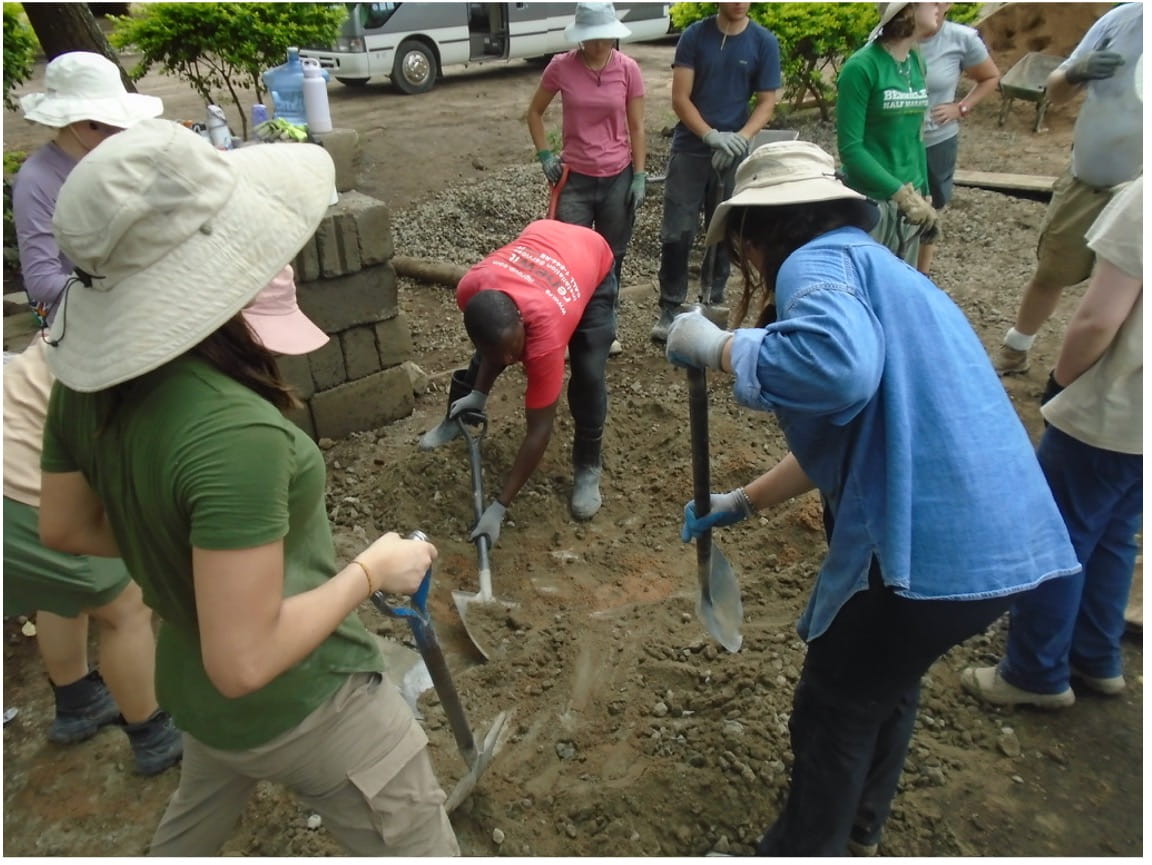
Communication proved challenging again when meeting local children playing around the school. Despite language barriers, we found ways to introduce ourselves through both broken English and translated Swahili. An 8-year-old named Brighton suggested a group game, leading us to uncontrollable laughter as we all ran around a circle playing duck-duck-goose, feeling connected without needing to exchange words.
The concluding project was more intimate but just as valuable: the money we raised over the year funded a goat we built a shed for. A family in need chosen by the seaway project, the organization Nord Angelia collaborated with for this trip, gained a new source of income and skills in goat husbandry. My friend and I also set up solar-powered lights inside the family’s home. We saw their home light up both with light, but also with the possibility of life and school work after dark for the children.
Through laying bricks, meeting new people and landscapes, and seeing the world in a way I normally don't, this trip was transformative beyond expectations. Through these experiences, I peeled back layers of boundaries and passiveness and I pushed myself to be present and active in the work we did. As a screen-dependent teenager, I found a more authentic and deep connection with my friends. I soaked up the sun and spirit of my surroundings. I noticed every stranger and lived in the moment, and I felt present and aware as I learned through guides as well as experience. I did things I never imagined I could. I reflect with so much gratitude for this opportunity, I really miss all of the amazing moments. I can’t wait to return someday after high school.
